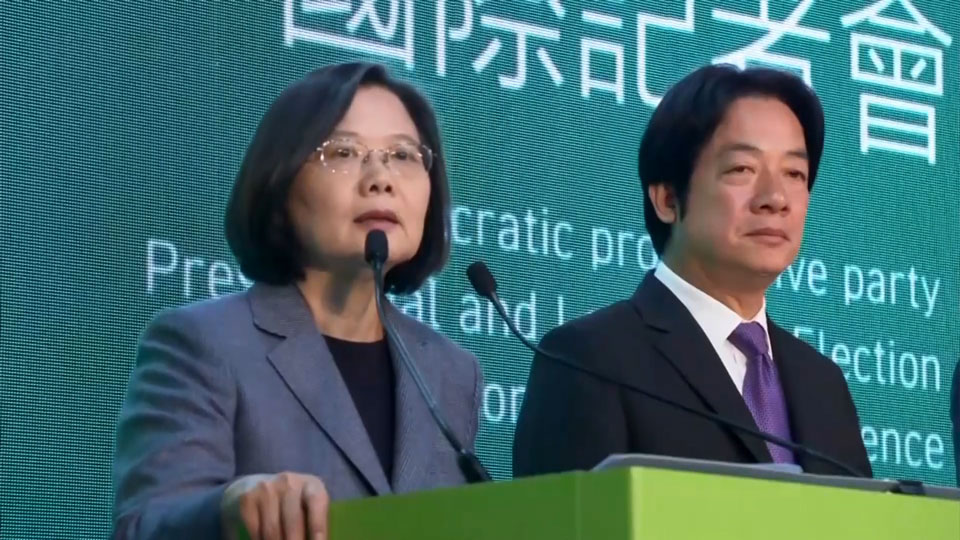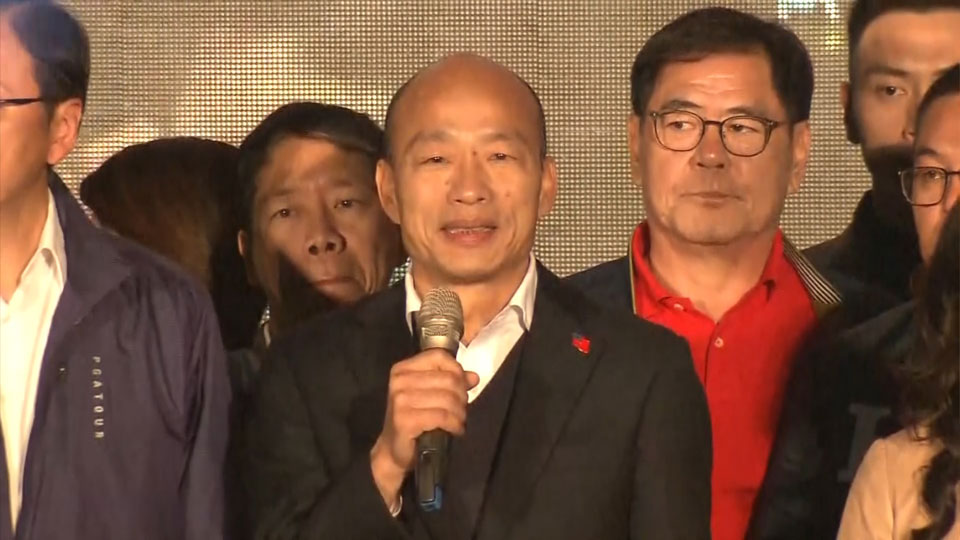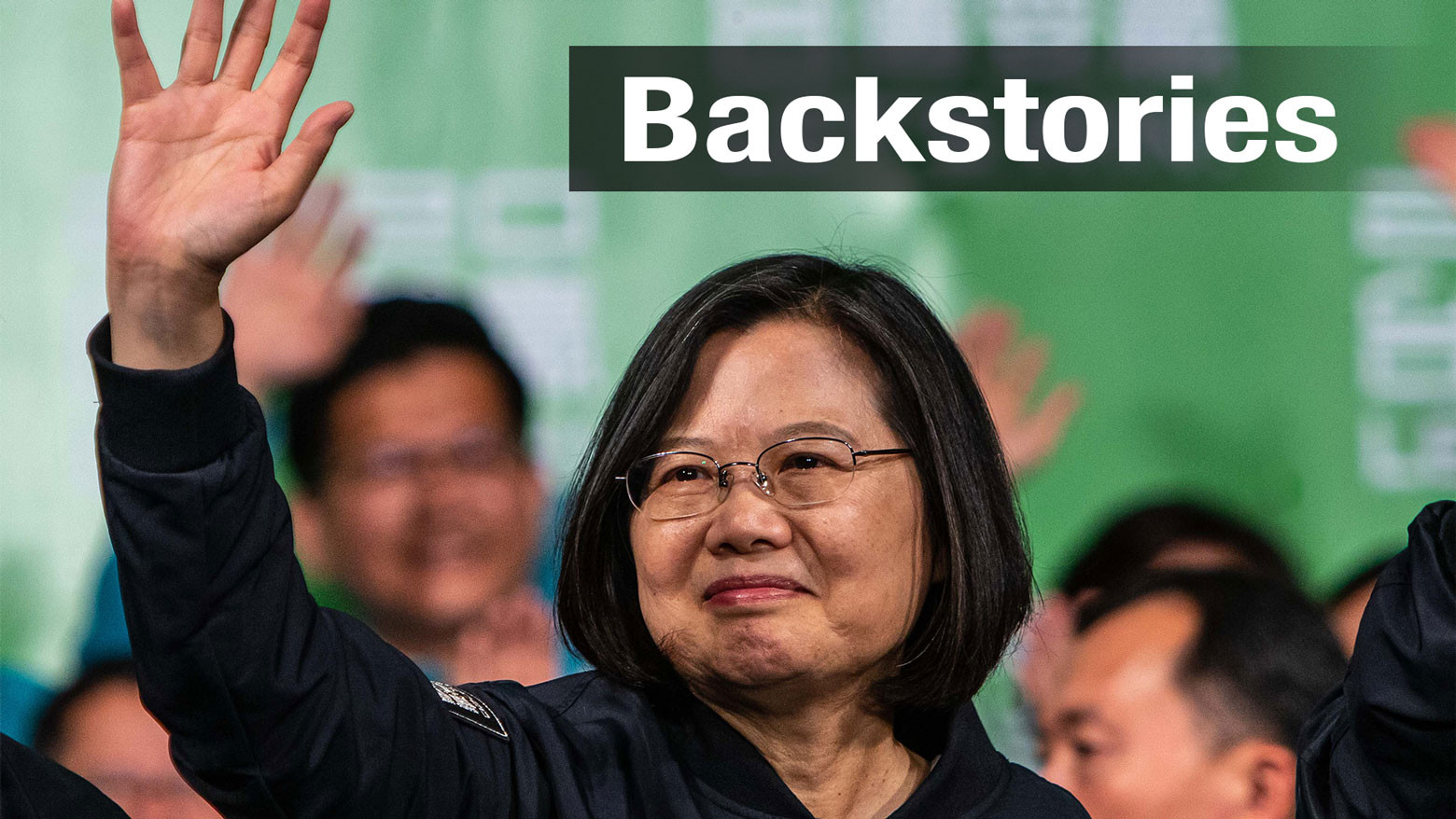Tsai said the result has a special significance, showing that Taiwan's people will shout their determination even more loudly when their sovereignty and democracy are threatened.
"I want to once again call upon the Beijing authorities to remind them that peace, parity, democracy and dialogue are the keys to cross-strait interaction and long-term stable development. These four words are also the only path to bringing together and benefitting both our two peoples," she said.

China is the key issue
The election was fought mainly on the issue of China, and how much Taiwan should distance itself. Voters had watched the democracy protests in Hong Kong, and Beijing's hardline response. China wants to re-unify Taiwan with the mainland under a similar "one country, two systems" principle.
President Tsai says democracy in Taiwan would be threatened if they move closer to Beijing. Her main rival in the election, Han Kuo-yu of the Nationalist Party, argued that improving ties with China would guarantee Taiwan's security and boost its economy.
But voters overwhelmingly sided with Tsai. The Central Election Commission says she won a record haul of votes -- more than 8 million. Han took 5.5 million.
Han conceded defeat and urged President Tsai to "work hard for the next 4 years, so that the people of Taiwan can live happily."
Taiwan also held parliamentary elections on Saturday, and Tsai's Democratic Progressive Party took a majority there too.

China reacts to Taiwan election results
China's Taiwan Affairs Office issued a statement on Saturday night. It did not mention Tsai's historic victory, but said the Chinese government adheres to the basic policy of peaceful reunification, "one country, two systems", and the One China principle.
The statement said the government resolutely opposes any separatist schemes and acts for the independence of Taiwan.
It said the government is willing to work with its compatriots in Taiwan to promote the peaceful development of cross-strait relations and advance the peaceful reunification of the homeland.
US Secretary of State Mike Pompeo released a statement congratulating Tsai on her reelection. He said Taiwan had once again demonstrated the strength of its robust democratic system. And in an apparent attempt to highlight differences with China, he said the US and Taiwan are "members of the same community of democracies" and share "political, economic, and international values."
What Tsai's victory means for relations with China
Lu Yeh-chung, a political expert at the National Chengchi University in Taipei, says he thinks Beijing will consider severing more diplomatic ties with Taiwan. He also believes China may try to block Taiwan's participation in international organizations, and limit Taiwan's business interactions.
Lu points out that Tsai may try to re-engage with Beijing, but says it may not be easy for her to make concessions.
"Many people this time voted for her because of the strong Chinese influence and pressure. So they may expect president Tsai to have an even stronger position vis-a-vis China. This may leave very little room for her to maneuver," he says.
Overall, Lu sees a bumpy road ahead, and says there are two key events to watch. In May, President Tsai will give a re-inauguration speech that will be pored over in Beijing. And in November, the US will hold a presidential election that could have a major impact on relations across the Taiwan Strait.


